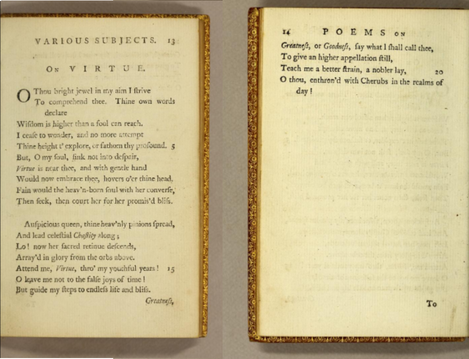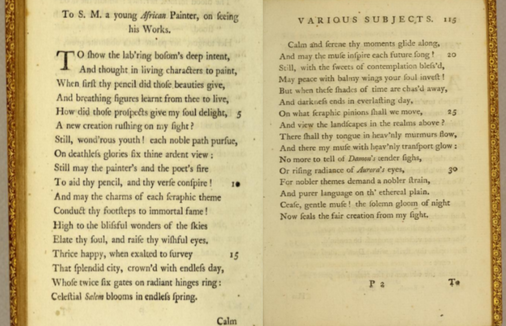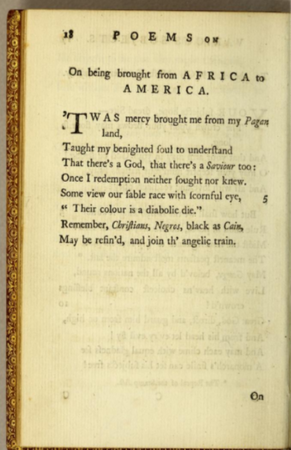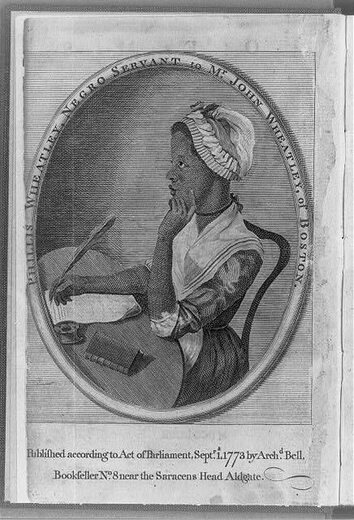|
In this episode, Haley Brennan speaks with Elliott Chen, New Narratives Post-Doc and Assistant Professor of Philosophy at Xavier University starting Fall 2022, about his work on two early modern women philosophers of science: Émilie du Châtelet and Laura Bassi. We talk about du Châtelet’s arguments against essential gravity and Newtonian attraction, and Bassi’s experiments with electricity. We discuss the differences between undertaking a project on a figure like du Châtelet, for whom there is now a growing body of literature, versus a figure like Bassi, who has received almost no philosophical attention. We talk about why it is worth taking on projects on figures like Bassi, how you get going on this kind of project, and the variety of work you can do. This episode is the second in a series of interviews with New Narratives Postdocs, past and present.
Select Bibliography Émilie du Châtelet, Foundations of Physics (1740) Laura Bassi, De acqua corpore naturali element aliorum corporum parte universi (1732, untranslated) Monique Frize, Laura Bassi and Science in 18th Century Europe: The Extraordinary Life and Role of Italy’s Pioneering Female Professor. Heidelberg, Springer: 2013. Laura Bassi: The World’s First Woman Professor in Natural Philosophy, edited by Luisa Cifarelli and Raffaella Simili. Cham, Springer: 2020. To listen to this episode, please visit our podcast page.
0 Comments
[Originally published on Facebook 30 April 2021]
Our third and last poem is called, “On Virtue”, and it also belongs to Phillis’ poetry collection entitled, “Poems on Various Subjects, Religious and Moral” that was published in 1773. As always, a link to the digitized version is provided at the end of this post. Enjoy the poem: O thou bright jewel in my aim I strive To comprehend thee. Thine own words declare Wisdom is higher than a fool can reach. I cease to wonder, and no more attempt Thine height t’explore, or fathom thy profound. But, O my soul, sink not into despair, Virtue is near thee, and with gentle hand Would now embrace thee, hovers o’er thine head. Fain would the heaven-born soul with her converse, Then seek, then court her for her promised bliss. Auspicious queen, thine heavenly pinions spread, And lead celestial Chastity along; Lo! now her sacred retinue descends, Arrayed in glory from the orbs above. Attend me, Virtue, thro’ my youthful years! O leave me not to the false joys of time! But guide my steps to endless life and bliss. Greatness, or Goodness, say what I shall call thee, To give a higher appellation still, Teach me a better strain, a nobler lay, O Thou, enthroned with Cherubs in the realms of day! Here, it seems that Virtue and Wisdom are related, and that Virtue is a means to Wisdom. Ordinary people (the “fool”) cannot reach Wisdom because Wisdom is too high. This could make us “to cease to wonder, and no more attempt/ Thine height t’explore, or fathom thy profound”. What is left for us besides having our soul sinking “into despair”? Virtue. Virtue can not only save us from despair, but also it can serve as a guide to “endless life” and “promised bliss”. In other words, Wheatley is suggesting that Wisdom is not reached directly, but through Virtue. Thus, rather than seeking to be a wise person, she thinks we should seek to become a virtuous person first. Now, what do you make of “Teach me a better strain”? To me, Wheatley is talking about two things: what is seen and what is not. The colour of our skin is something that is seen; a virtuous soul is something that is not. It would not matter the colour of someone’s skin, for instance, but only whether that person is virtuous. Digitized Version [Internet Archive]: https://archive.org/.../poemsonvarioussu.../page/13/mode/1up -MM [Originally published on Facebook 22 April 2021]
Our second poem is called, “To S.M., a Young African Painter, on Seeing His Works”. It belongs to Phillis’ poetry collection entitled, “Poems on Various Subjects, Religious and Moral” that was published in 1773. A link to the digitized version is provided at the end of this post. Here is the poem: To show the lab’ring bosom’s deep intent, And thought in living characters to paint, When first thy pencil did those beauties give, And breathing figures learnt from thee to live, How did those prospects give my soul delight, A new creation rushing on my sight? Still, wond’rous youth! each noble path pursue, On deathless glories fix thine ardent view: Still may the painter’s and the poet’s fire To aid thy pencil, and thy verse conspire! And may the charms of each seraphic theme Conduct thy footsteps to immortal fame! High to the blissful wonders of the skies Elate thy soul, and raise thy wishful eyes. Thrice happy, when exalted to survey That splendid city, crown’d with endless day, Whose twice six gates on radiant hinges ring: Celestial Salem blooms in endless spring. Calm and serene thy moments glide along, And may the muse inspire each future song! Still, with the sweets of contemplation bless’d, May peace with balmy wings your soul invest! But when these shades of time are chas’d away, And darkness ends in everlasting day, On what seraphic pinions shall we move, And view the landscapes in the realms above? There shall thy tongue in heav’nly murmurs flow, And there my muse with heav’nly transport glow: No more to tell of Damon’s tender sighs, Or rising radiance of Aurora’s eyes, For nobler themes demand a nobler strain, And purer language on th’ ethereal plain. Cease, gentle muse! the solemn gloom of night Now seals the fair creation from my sight. This poem shows us that there can be philosophical topics in poetry, topics from Philosophy of Art, or Aesthetics, including: beauty and the problem of expressing the eternal in the human realm, the aesthetical effect provoked by the author and the possibility of such an effect, timelessness or the eternal, including the nature of space in heaven. Wheatley also mentions the relationship between poetry and painting, as if both the poet and the painter conspire. Although we could continue to think broadly about such topics, it is interesting to note one particularity. Both Wheatley and the painter have something in common besides being a creator of life (a “poetes”, ποιητης). They are of the same strain. In this context, we understand “strain” as being of race, generation. By the title, this poem is to a young African painter; by the author, this poem is by an African poet. What would you think that Wheatley had in mind when she wrote this poem about an African painter in 1773? Digitized version [Internet Archive]: https://archive.org/.../poemsonvariouss.../page/114/mode/1up -MM [Originally published on Facebook April 14, 2021]
Our first poem of Phillis Wheatley is called “On Being Brought from Africa to America”, and it was published in 1773 in her poetry collection “Poems on Various Subjects, Religious and Moral”. We provide a link to the digitized version of her collection at the end of the post. Here is the poem: ‘Twas mercy brought me from my Pagan land, Taught my benighted soul to understand That there’s a God, that there’s a Saviour too: Once I redemption neither sought nor knew. Some view our stable race with scornful eye, “Their colour is a diabolic die.” Remember, Christians, Negros, black as Cain, May be refin’d, and join th’angelic train. There are some interesting conflicts. Firstly, Phillis opens her poem saying that “ ‘twas mercy” who brought her, not slavery. Secondly, she calls her land pagan as if she ignores (we don’t know whether voluntarily or not) the sacrality of the beliefs of her homeland. The third line reinforces that idea, as if there was no God, no “saviour” in Africa, which makes us to wonder if Phillis accepted her past or not. In the fourth line, redemption was not sought by her maybe because she did not know about it. It seems that ignorance makes us away from redemption. However, that same ignorance can be found in America too because some “view our stable race with scornful eye” believing that “their colour is a diabolic die”. This apparent shift of where ignorance lies makes the end of the poem ambiguous: to whom is she talking? Who is her audience? Is she asking all Christians to remember that “Negros”, who are “black as Cain, may be refin’d, and join th’angelic train” or is she asking everyone to remember that both Christians and “Negros” could be “black as Cain”, and that both “may be refin’d, and join th’angelic train”? Finally, was this ambiguity intentional by the poet? What do you think? Digitized Version [Internet Archive]: https://archive.org/.../poemsonvarioussu.../page/18/mode/1up [Originally published on Facebook April 9, 2021]
Phillis Wheatley, the first African American to publish a book of poems, is our woman philosopher of April. She was born in the Republic of Gambia, in the western part of Africa, it is thought in 1753. At the age of 8, Phillis was brought to America as a slave, when she was bought by the Wheatley family in Boston, Massachusetts. Hence, her last name. Her first name is due to the ship that brought her, the Phillis. The Wheatley family taught her Astronomy, Geography, Literature, English, Ancient Greek and Latin. After 16 months, Phillis could read the Bible, Greek and Latin classics (in Greek and in Latin), and British Literature. In 1767, Phillis published her first poem, “On Messieurs Hussey and Coffin”. In 1770, she published “An Elegiac Poem, on the Death of the Celebrated Divine, and Eminent Servant of Jesus Christ, the Reverend and Learned George Whitefield”, which brought her notoriety. In 1773, she went to London to publish her collection of poems called “Poems on Various Subjects, Religious and Moral”. There, Phillis met people such as Baron George Lyttleton, Sir Brook Watson, John Thorton, and Benjamin Franklin. The travel was sponsored by the English Countess of Huntington, Selina Hastings. Her book is considered a landmark achievement in the US history. Due to the unusual fact that the book was written by a slave, her book included a preface with 17 Boston notable men attesting that it was indeed written by Phillis, a slave. John Hancock, who signed the United States Declaration of Independence, was among those men. Phillis was emancipated after the book’s publication. Defender of freedom and liberty, Phillis wrote poems supporting America’s fight for independence. Let me mention here the poem called “His Excellency General Washington”, which was sent by Phillis directly to Gen. George Washington in Cambridge, Massachusetts, in 1775. One year later, Washington invited Phillis to visit him. She accepted. Other themes in her poems include: religious rites, death, and slavery. She died on December 5, 1784, due to complications from childbirth. It is believed that she wrote 145 poems. Her work contributed to American literature, and her literary and artistic talents helped to demonstrate that African Americans were equally capable, creative, intelligent human beings who benefited from an education, helping the cause of the abolition movement. If you want to know more about her, take a look at these websites: National Women's History Museum (US): https://www.womenshistory.org/.../biogra.../phillis-wheatley Biography: https://www.biography.com/writer/phillis-wheatley Poetry Foundation: https://www.poetryfoundation.org/poets/phillis-wheatley -MM |
Authors
Jacinta Shrimpton is a PhD student in Philosophy at the University of Sydney. She is co-producer of the ENN New Voices podcast Archives
May 2024
Categories
All
|




 RSS Feed
RSS Feed